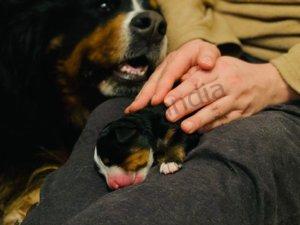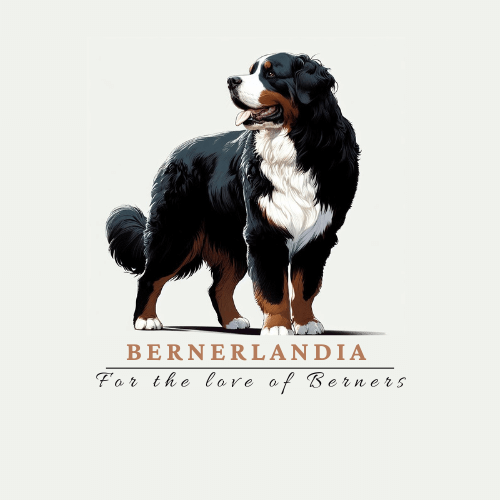
blog
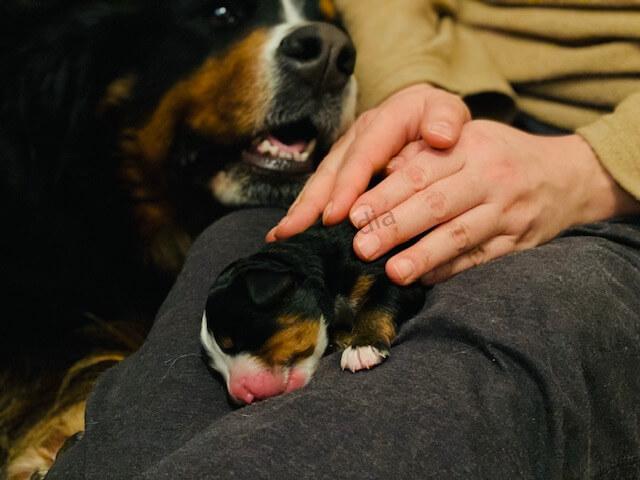
How to find a Responsible Breeder
10-20 min read
How many times have you wondered?
- Have I done my research on the breed?
- How do I know if this Breeder is for real?
- Do I know what I need to know before I buy this puppy?
- Is it safe for me to send money to this stranger?
Our guess would be, many. But you are not alone, so, deep breaths. We can do this!
Research is part of the process we should all go through before making the big step of bringing a new family member home.
For the purpose of this entry, we will be focusing on our breed -the one and only- Bernese Mountain Dog. We are hopeful that if you are looking for a different breed of dog, you can still find helpful information here.
And for the record, while we hope this guide is comprehensive, we do not know everything.
Before we get into the nitty gritty of finding a breeder, the very first thing we must focus on is the breed we want. Bernese Mountain Dog is our target, so let’s ask ourselves the following questions:
- Why do we want a Bernese Mountain Dog?
- Do we know the health concerns in large breed dogs?
- Their average life span?
- How cancer affects large breeds and at what rate?
- What do we need to know in regards to grooming double coated dogs?
- Are we ok with fur everywhere in my house?
- Will we carve the time to provide the appropriate training and exercise this breed needs?
Ponder we must.
As a family considering bringing a dog into our home, these are some of the many things we must consider. We ought to decide if we are in a place to be responsible for a dog, that not only is it a gigantic goofball, it will also depend on us 100%. Are we comfortable accepting that this breed has perhaps a shorter life span than others? A dog that is prone to a few developmental issues, and that will infiltrate every cup of tea with fur, and every cell of our soul and heart with love.
Bernese are prone to:
- Hip, elbow and other joint dysplasias
- Bone cancer
- Histiocytic Sarcoma (an aggressive type of white blood cell cancer)
- Several other cancers
- Gastric Torsion
- A few genetic diseases
Their average life span is between 6-12 years (with a medium of 7-9).
Large to giant dog breeds develop their musculoskeletal (bone / muscle) system incredibly slowly. While certain small breeds can be considered fully mature at the age of 7-12 months, large breeds tend to finish maturing somewhere between 2.5 and 3 years of age. This means having to restrict certain physical activities, until fully grown, to help prevent developmental injuries.
This developmental process is as much psychological as it is physical. In general, Berneses and large breed dogs tend to behave like puppies until around 1.5 to 2.5 years. Males in particular tend to mature slower and can act like puppies all the way up to 3 years of age. That is a 100+ pounds of puppy play-bowing all over your house.
Grooming is heavy duty with the Berner. For most of our dogs, it is a 4 hour endeavor between bathing, brushing and drying. For those of you who consider a groomer, this breed tends to require monthly grooming. A trip to the groomer for double coated, large breed dogs, has an average cost of $120, give or take $30 depending on the groomer. That alone is over $1,200 a year in grooming. One more thing to ponder on.
That said, let us begin!
The first step: Research
Enter: Bernergarde.org
Very well grasshopper, let us move forward.
In the search for the right Bernese Breeder for you, there is a word that you must familiarize yourself with. Yes, you guessed it.
Bernergarde.org is a magical place for Bernese Breeders and lovers everywhere in the world.
“What is the deal with Bernergarde?” You may ask.
Simply put, Bernergarde is a non-profit organization that collects voluntarily provided information from every Berner lover out there. In doing so they have created a large database to advance the health, longevity and information on the breed.
It allows Breeders, families, scientists, and other interested parties, to research lineages, health records, certificates, life spans, amongst many other insights.
In other words, it is “El Dorado” of the Bernese community.
Reputable breeders, as lovers and stewards of the breed; love, support and are all for Bernergarde. In most cases, responsible breeders will educate all potential families on this database.
It is important to make a parenthesis here. Bernergarde is not new, but it is not fully established yet, especially in European countries. As such, many breeders from that part of the world are not yet found on the database. If that is the case, then we encourage you to find other ways to search their lineages and health certifications.
This database is an essential tool to aid your research. Search your breeder and their dogs. Any and all health certificates can be uploaded regardless of the dog’s age and / or health score. In here you should be able to find what tests they have done for their dogs, if any. If they don’t have any testing done: Red flag, buyers beware.
If they do have tests, what tests do they have, and what are the scores on hip, elbows, etc. and genetic testing?
This brings us to our next stepping stone.
Health Screenings
As previously mentioned, the Berner, and most large breed dogs are prone to several health conditions. While there are no absolutes in life, we can, as breeders do our best to provide the best start in life for puppies.
According to the OFA (Orthopedic Foundation for Animals), the Bernese should be tested for the following:
- Hip Dysplasia
- Elbow Dysplasia
- Eyes
- Heart
- Degenerative Myelopathy
- And a few elective tests are: Von Willebrand’s disease, Histiocytic Sarcoma, Thyroid.
One question we get asked often is: What do the scores on tests mean?
There are certain test results that are easy to interpret such as “Carrier / Non-Carrier”, but certain other tests such as hips, elbows and other genetic tests give a spectrum.
Let’s take a look at hips for example:
The OFA rates hips as: Excellent, Good, Fair, Borderline, Mild, Moderate and Severe. For the sake of simplicity, let’s look at these scores rated as A, B and C’s.
- Excellent: A+
- Good: A
- Fair: A-
- Borderline: B
- Mild: B-
- Moderate: C
- Severe: F
In general, anything in the A area is a safe space. But it can be trickier than that since lineage plays an equally large role here.
If you have a dog rated A+, but if the parents, grandparents and great grandparents were not tested, or if one or more were affected by hip dysplasia, the odds for dysplasia increases on that entire lineage. As such, while, yes, it is great if your breeder tested their dogs (as it is the responsible thing to do), if there are no tests on the lineage, you are left in the unknown.
The same is true with dogs that tested, let’s say “A-” but their lineage and progeny have had A+ and A ratings throughout the years. This means this lineage has been proven.
There are many reasons as to why responsible breeders do certain pairings, such as, to improve a specific part of their line, to add more balance to a stance, or to provide a better genetic foundation, to name a few. Whatever the reason may be, you may then encounter an A+ bred to a B, depending on what the breeder is trying to accomplish.
As a potential buyer, to keep things simple you’d want to remain in the “A” territory, but if there is a particular breeder you like that maybe is in the B’s, or if you have concerns, ask questions and follow your intuition.
The aforementioned applies to responsible breeders, not backyard, or breeders for profit.
We will discuss genetic testing shortly, but for the sake of understanding results, let us use Degenerative Myelopathy. The results for this test provide a spectrum of: Non-carrier, Carrier and Affected.
- Non-carrier: The genes in this dog do not carry the disease.
- Carrier: The genes in this dog carry the disease, but in general they do not get affected by it.
- Affected: They carry the gene, and the possibility of being affected by this condition is high.
There is a tremendous amount of breeder variation and beliefs in this area. Some breeders will do non-carrier to carrier pairings, and stand behind their pairing saying these puppies are not affected, and should be great and long-lived family companions.
There are breeders, like us, who believe in breeding dogs with the highest level of foundation possible. As such, we only breed Non-carriers.
If in doubt, have a conversation with your breeder, ask questions, and see what feels right for you.
All that being said: Does your breeder test for hip, elbows, eyes and heart? Are the certifications easily found on either Bernergarde or the OFA websites?
For heart testing, did they have an echocardiogram done or was it auscultation only? There is a difference. One study is done by a certified cardiologist, who can clear the dog from heart abnormalities with the use of an ultrasound, doppler and other specialized equipment. The other is a licensed Veterinarian listening with a stethoscope for no abnormal sounds.
In Bernergarde, you may also search and find multi-generation pedigrees. In most cases you should be able to see parents, grandparents, great-great grandparents, and in this way, make sure you are buying a line that is genetically proven. Breeders that provide testing:
- They care enough about the breed to do so.
- They are providing a good foundational start for their puppies.
- These puppies are less likely to develop such conditions later in life.
Regardless of any and all clearances, life happens. Diet, excessive exercise, and genetic triggers, can create conditions for dysplasias, cancers, and other illnesses. What responsible breeders try to do is lay a foundation to provide the best chances against such eventualities.
Genetic Testing
- Degenerative Myelopathy
- Degenerative Myelopathy: Variation SOD1B
- Von Willebrand’s Disease
As part of your research, it is important to learn the diseases that are more likely to affect a particular breed. Bernese are affected by Degenerative Myelopathy, also known as DM. This disease has been found to affect them in two different markers. As such, your breeder should test for DM and the variant, DMSOD1B. Von Willebrand’s Disease is another genetic disease to test for. We invite you to do your own research for the specifics of what these conditions are.
Histiocytic Sarcoma
At the moment this guide was written, this test is only performed in France. It is time demanding, expensive and complex. As such, any breeder that you found that has had their dogs tested for it, is likely to be a good find.
The histiocytic Sarcoma test is not specific, this means it is not black and white. At this time, the HS test, tests for specific markers that can help guide breeders into a better direction for the breed. Due to the complexity of this test, If you wish to know more, we encourage you to ask your breeder or keep on researching grasshoppers.
We could easily end this entry here.
If you find a breeder that checks those two important areas, then you are likely to do fine with such a puppy. If you would like to take it a step further, then let’s continue.
Championships & Ribbons
Breeders that take the time to show their dogs, to earn those points and ribbons deserve a lot of praise. It is a significant investment of time and money. It is dedication, traveling, grooming and training.
In shows, dogs are judged in a form-to-function way. In other words, what was the dog bred to do or perform. In the USA, the dog will be judged according to the AKC breed standard.
They will be judged on:
Desired general appearance, movement, temperament, and specific physical traits such as height and weight, coat type, coat color, eye color, and shape, ear shape and placement, feet, tail, and more.
When it comes to buying a puppy, why does it matter if the dogs have ribbons or not?
The more ribbons = the more wins = the better the phenotype is proven. The dog is assessed by different judges across the country or the world. This is why when there are dogs with multi championships on their belts, the price of the puppies rises exponentially.
Dogs with championships, or lines with multi-championships have been graded, assessed and the ribbon is proof of phenotype and breed standard. Phenotype is a fancy word for the way a dog looks, the exterior of the house if you will. As such, lines with champions or multi championships will provide a guaranteed breed standard looking pup, as well as proven gait, and structure.
Temperament
“Ok Sensei, the puppy is born from parents with health clearances and the lineage looks solid on Bernergarde, but we want more.”
Great! So do we.
While we love health screenings, they don’t say anything about the parents temperament.
The Bernese, per the breed standard is loyal, devoted, intelligent, playful and can / should be wary of strangers, but never aggressive. It should be secure of himself and the biggest goofball you’ll ever meet. Do aggressive, nervous, anxious and other Bernese exist out there? Yes, yes they do.
Make no mistake, temperament is inherited. “Does that mean if I buy a puppy from an aggressive parent, will my puppy be aggressive?” It is possible, but there are many factors at play. What we know is that it is more likely for that puppy to develop behavioral issues.
We encourage you to ask about the parents. How are they behaviorally? How is their temperament? Can you see them on video or in person? Can you get a feel for the parents?
Puppy rearing / socialization
“Sensei! This breeder is on Bernergarde, they have health clearances, both, physical and genetic, and the parents are also of sound temperament.”
Can I get a Yodel-Ay-Hee-Hoo?! We are on the right track grasshopper!
“So, now what?”
Let’s discuss puppy rearing.
There are all sorts of socialization and rearing programs for newborn and young puppies out there (less than 8-12 weeks). The questions to ask a breeder are:
- Do you have a Puppy Rearing program or not?
- What type of program do they have?
- What benefits do they believe it provides the puppies?
- Can you see a few examples of the work they’ve done on video?
Do puppies born and self-raised in barns are naturally born trouble makers and bad pets? No, not necessarily. But puppies that are born in a home, handled appropriately from the get-go and provided with tools to understand the human world, dog-human communication and bond, tend to thrive much more reliably.
Puppy rearing / socialization will NOT give a puppy that is housebroken, knows how to use a leash, sit, lay down, wait, and all other training tricks of the dog world trade. That is puppy training. Yes, we are trying to make a point here, because a lot of owners get this confused.
Puppy rearing programs help lay, yet another foundational layer, that will help puppies handle human-interaction and the world better. As aforementioned, puppy socialization programs will not result in a puppy that is housebroken, or knows how to do tricks. But, with certain rearing programs, they will know the concept of potty training, and human communication, which is key.
Puppy rearing is the art of exposing puppies to experiences and activities that engage their mental, and physical health in mild and controlled challenges. With proper handling based on behavioral markers, such programs help lay foundational concepts that aid puppies develop stronger reflex and immune systems and coping mechanisms.
It is important to note, puppy rearing programs are intense, involved and incredibly time demanding. They require diligence and dedicated attention to each individual puppy and to the litter every single day. If you find a breeder that provides puppy rearing programs, such as our favorite, Puppy Culture, that is usually a good find.
Breeder Support:
For better or for worse, until death do us part.
“Holy motherload of information Batman! I mean, Sensei.”
Yes indeed, but well done you! We have gone through databases, physical and genetic testing, temperament, and puppy rearing. Wax on, wax off grasshopper.
If you have the aforementioned in place, odds are you’ll end up with an amazing puppy.
No matter what however, most Berneses growing up are a combination of a tornado with baby shark teeth, and the stubbornness to match their giant goofy hearts. But oh my goodness are they the greatest!
The tornado with baby shark teeth combination though, is hard for certain families to handle, especially if this is their first dog. But if their breeder is there to lend a helping hand, you have found a rare type of breeder.
Responsible breeders are called that because they understand the weight of their decision. We are after all, bringing lives into this world, we are responsible for the development and well being of our puppies in one way or another until death do us part.
Families are as unique as puppies themselves, there are some that have had dogs all their lives, and others that will be raising their first puppy. Some puppies are calmer and easy going, while others are rambunctious and energizer bunnies.
While some families wonder what is normal for a puppy to chew, pee or sleep, other families may be wondering what are the best practices to exercise a large breed, growing pup.
All of these are valid concerns, they are normal questions and much needed actually! But Google only goes so far, and Google is not specific. This is where the support from your breeder can really make a difference. They know their breed and their puppies, they can provide a lending hand in saying “This is normal” or perhaps an adjustment is needed, but either way, you are not alone wondering what, when, if, where, and / or how.
Your breeder is not only interested in helping you, they should want to do what is best for their puppies. We personally love each and every single puppy born in our home, we want them to thrive, we want them to have their best life with their family, and by helping our families, we help our puppies.
When searching for a breeder, ask what type of support, if any, you can expect from them. Their answer will make a big difference in your overall experience regardless if it is your first or 20th dog.
The Nitty Gritty
Vaccinations & Dewormig
You can, in all honesty, skip this part of the entry. If you find a breeder that matches all or most of the above qualifications, you are bound to be in good hands. The following subcategories, while they play a seamlessly minor role in the bernese puppy acquisition process, can be important as well.
Vaccination: Does your breeder perform Nomographs? A nomograph is an estimate of the amount of antibody passed to a litter of pups from the mother via her colostrum. Nomograph testing helps us understand the best timing of vaccination to assure a litter will be effectively immunized and when to vaccinate, instead of over-vaccinating, or guessing a vaccination timeline.
Does your breeder offer vaccinations to their puppies? How often and why?
At 8 weeks of age, puppies should have at least one vaccine known as the Quintuple vaccine (also known as DHPP or DH2PP). The reason for the name is that it grants immunity against 5 different viruses: Distemper, Adenovirus 1 and 2, Parvovirus, and Parainfluenza. These are all dog specific.
Deworming: Deworming schedules and medications vary greatly. Depending on the area of the world in which your breeder is based, determines which worms and parasites they should treat for. At the bare minimum, puppies should be dewormed at least twice with a broad spectrum dewormer before joining their forever families.
Nutrition
This is a subject as wide as the ocean. But why should it matter to you if you buy a puppy from a breeder that feeds kibble only vs one that feeds a raw diet, or a home made diet? Puppies can live on either diet.
For us, it is a matter of setting up our dogs and puppies the absolute best start and foundation possible. Based on our experience, when our dogs and puppies used to be fed kibble only, they did ok, but once we started feeding a homemade diet, we noticed a drastic difference in the health and robustness of newborn puppies. Also, the quality of milk from the moms, as well as their ability to recover from pregnancy increased tremendously. Puppies fed on a home made diet vs kibble in our experience also respond faster to stimulus, are faster learners, they have stronger immune systems and develop much more solidly.
It is an overall sturdiness we have been able to appreciate in our overall program since we began this feeding process. We are not by any means dissing programs that have different nutrition programs. But there is a palpable difference in puppies and dogs when fed something other than highly processed foods. Research and decide what feels best for you.
Contracts & Deposits
A contract is meant to protect the puppy first, then provide equal protection for the buyer and the breeder. Does the contract specify what your obligations to the puppy are? Can you breed this puppy or are there penalties if you do? At what age, if any, do you have to spay / neuter your dog? Can you return the puppy if something happens? Make sure to read through those contracts and that they match with what you are looking for.
Deposits
We did not forget about that initial question. “How do I know if it’s safe to send money to this stranger?”
First and foremost, please use common sense.
That answer may not be the most helpful, but it should be!
Secondly, use each and every red flag we offer here before sending money to anybody.
Do not let your excitement blind you to reality.
The truth of the matter is, legitimate breeders work really hard for their programs. With so much work comes a sense of pride, and you should be able to palpate and see this on their website and social media accounts, or somewhere! Responsible breeders love and live for their dogs, they want others to see them, to learn from them, to help and guide others from the knowledge we’ve gathered over the years.
Reputable breeders do not push puppy sales. The safety of a puppy, their well being and the right family for them should be more important than money, always.
Final thoughts
You thought getting a Bernese would be as easy as ordering socks through Amazon didn’t you grasshopper?
As we hoped you learned, it is a bit more complex than that. Acquiring a puppy from a reputable breeder takes time and a touch of luck. It is challenging and it takes time, believe me, we know!
Puppies from such breeders are usually placed before they are born, and there is a good reason for it.
We recommend you do your research and be prepared to wait.
Good breeders are rare, but they are out there, and so is your future puppy!
May the Berner Force be with you grasshopper!
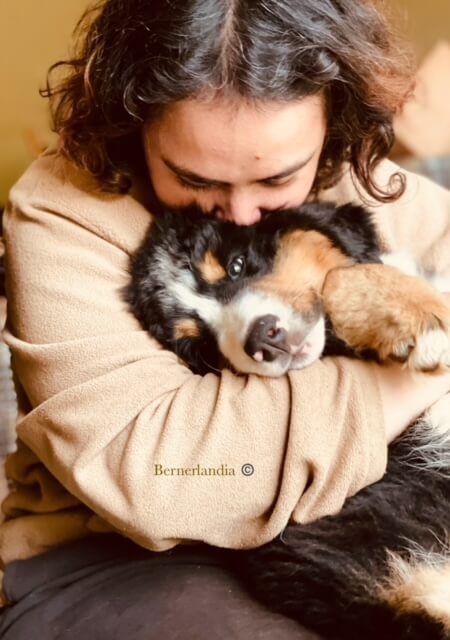
AY
DVM by Career, Breeder by heart.
Loving Berners is our passion, breeding them our privilege.
@Bernerlandia
Berner, Set, Go!
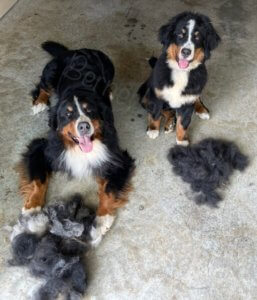
Do Berners shed?
Do Berneses shed a lot? https://youtu.be/FyCCeli9zfY Hmmm. Yes. Yes they do. This is one of the most frequent questions we hear when someone is new

The Naughtiness behind a Berner Pup
The truth, may set you free. As always, please remember: Dog are individuals and variations will always exist. A Bernese puppy. A fluffy, bouncy, tricolor
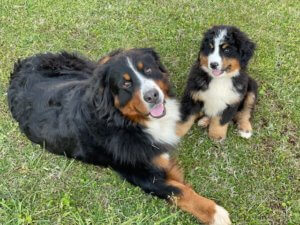
What is the difference between a female or a male?
We will start this post with the following warning: Do not believe everything you read on the internet If you are curious as to what
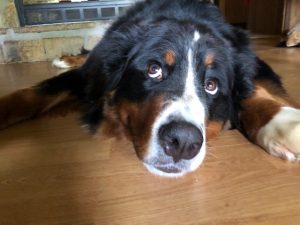
The Spay / Neuter Conundrum
Breeder note: Your veterinarian is responsible for the health of your pet. Regardless of the opinions of this blog, always discuss options with your pet’s
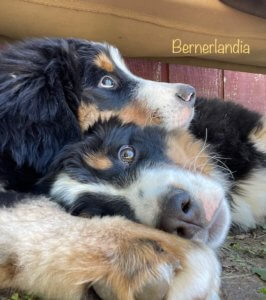
Crate & Potty – The greatest BFF’s
Potty Training and its BFF – Crate training. Throughout many years of training and interacting with new dog parents, I have received a myriad of
The Wet Sock Vortex
In potty training terms: The 2 to 4 months old (up to 6 months) window is also known as: “The wet sock vortex”. Before we
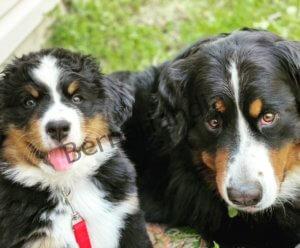
New Owner Transition – The Beginning
“What did we get ourselves into Mary?” I don’t know anyone called Mary, but it was the first name that came to mind (If someone
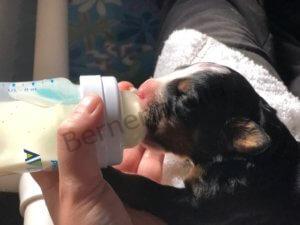
Raising Large Breed Puppies – An Introduction
What does it take to raise a large breed dog from puppy stage? Is there a difference to raising other dogs? The short answer is,
